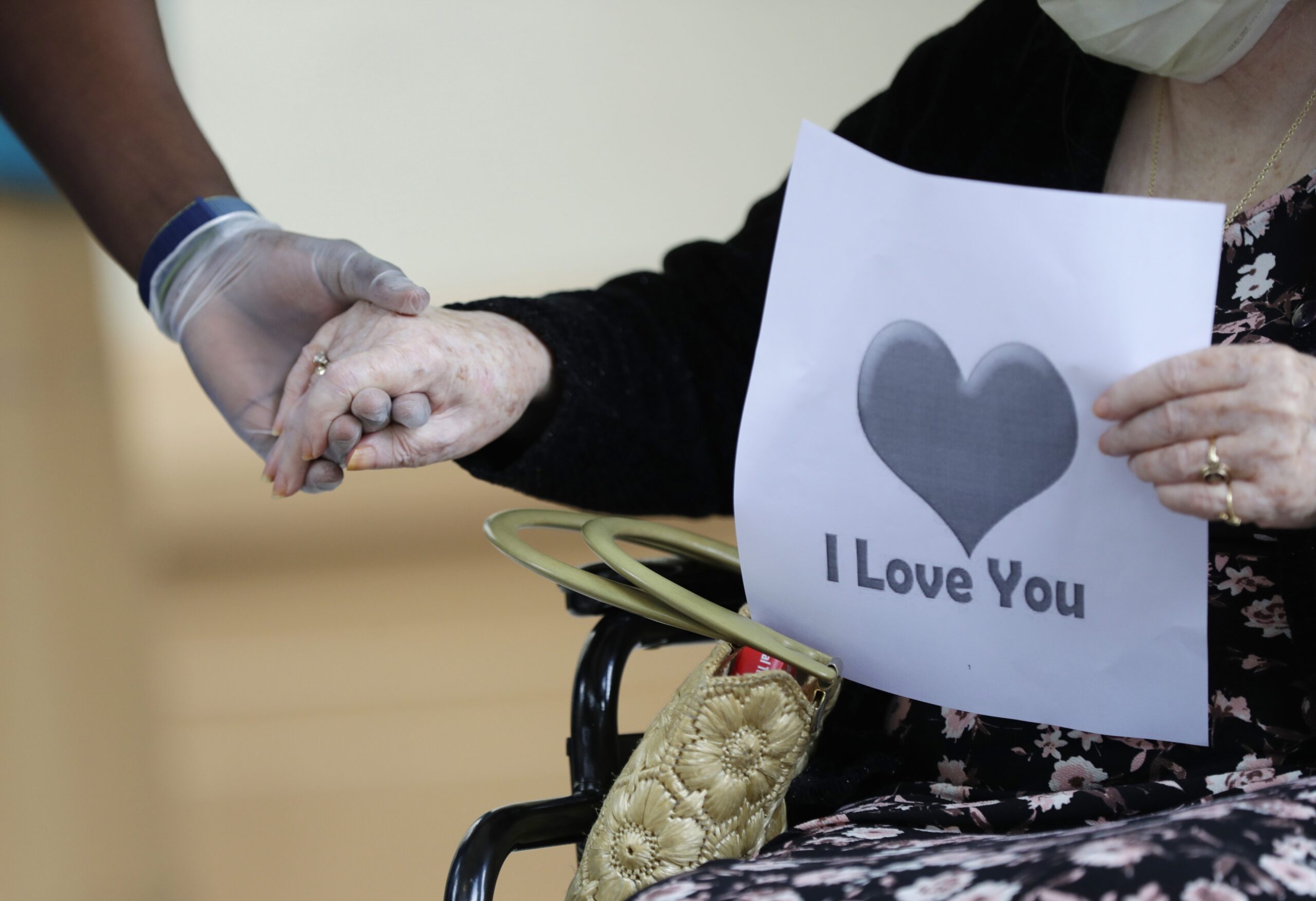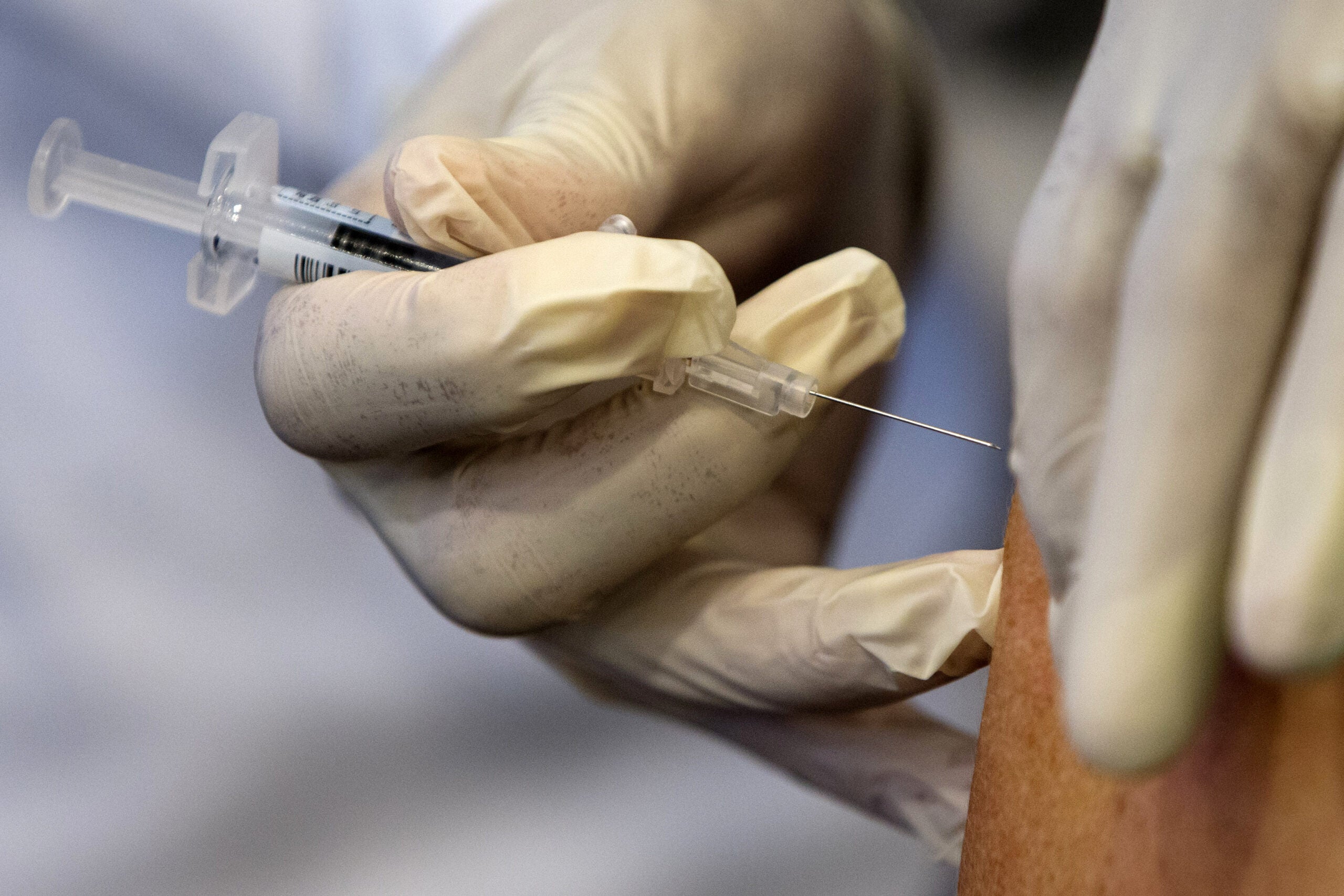It’s been more than a week since St. Paul Elder Services in Kaukauna announced a COVID-19 vaccine requirement for staff.
Administrator Sondra Norder expects the community will lose about 5 percent of its employees due to the decision. It’s a significant number, she said.
“It’s something that we don’t want to see happen, but in weighing all the factors and the totality of the circumstances, there was just really no other choice for us,” she said.
News with a little more humanity
WPR’s “Wisconsin Today” newsletter keeps you connected to the state you love without feeling overwhelmed. No paywall. No agenda. No corporate filter.
Vaccine requirements are in place at very few of the state’s long-term care facilities, said Rick Abrams, president and CEO of the Wisconsin Health Care Association.
But it seems that’s set to change after President Joe Biden announced last week a federal vaccine mandate for nursing home workers. Facilities that don’t comply could lose federal funding.
In Wisconsin, the vaccination rate for people working in long-term care is about 60 percent, Abrams said. With the national rate for nursing home workers lagging that of the public, according to the Biden administration, Norder said she doesn’t think anyone should be surprised by the news of a federal requirement.
“The federal government — as President Biden said in his announcement — is the largest purchaser of health care services in the nation, and therefore has a whole lot of pull and oversight over facilities that take money from it,” she said.
But others worry a federal mandate will drive workers away from Wisconsin nursing homes — which are already facing a staffing crisis. A quarter of the state’s jobs in the field are unfilled, Abrams said.
More than 40 Wisconsin nursing homes have closed in the last five years, with the state losing more than 700 beds in 2021, he said. Reducing the workforce and cutting funds could add to those numbers, he said.
Abrams doesn’t see the Biden administration walking back the vaccine mandate, but he’s optimistic that it’ll be implemented in a thoughtful way, he said.
“We’ve taken steps to educate and encourage our staff members to get vaccinated, and there just are some caregivers who are resistant to being vaccinated,” said Melissa Walthall, administrator at Park View Home in Woodville.
Misinformation is contributing to vaccine hesitancy among long-term care staff, Norder said. Some women believe it could affect their fertility, a claim with no scientific backing, and others are waiting until the vaccines receive full approval by the Food and Drug Administration, Abrams said.
Walthall is concerned about the impact a federal vaccine mandate could have on staffing. Staffing shortages can impact the quality of care at nursing homes, she said.
A blanket requirement across all health care settings could help mitigate the problem by preventing unvaccinated nursing home workers from seeking positions in other health care settings, she said. But it’s also possible some workers would leave the industry altogether, Abrams said.
“The reality is we’re all here to do what’s best for our residents and our families, and that’s what we want to continue to do,” Walthall said.
COVID-19 Cases Continue To Increase In Wisconsin
Nursing home workers experienced a lot of trauma last year, and many of Norder’s staff members have real fears as case counts increase in Wisconsin, she said.
“It’s frustrating that we have a tool in our toolbox to prevent some of the surges that we’re seeing in hospitals across the country,” she said. “So I think we’re all bordering on feeling defeated, but we’re still in this fight for now.”
The number of facility-wide COVID-19 investigations at Wisconsin long-term care facilities is on the rise, according to the state Department of Health Services.
And while nursing homes and assisted living facilities have kept infection control measures in place, there are concerns they may have to close to visitors if COVID-19 becomes too widespread in Wisconsin, Abrams said.
“I cannot tell you the negative impact that has on the quality of life for our residents and their families,” he said.
Booster Shots May Be Coming, But Details Are Unclear
More than 82 percent of Wisconsin seniors have completed their COVID-19 vaccine series, with nursing home residents among the first to receive their shots. But at a White House briefing last week, Dr. Rochelle Walensky of the Centers for Disease Control and Prevention said, “The data consistently demonstrate a reduction of vaccine effectiveness against infection over time.”
Providers have already started offering booster shots for moderately to severely immunocompromised people, and Biden announced plans last week to offer third shots beginning next month to all United States adults who received the Pfizer or Moderna vaccine.
Wisconsin nursing homes say the details for distributing the next round of shots are unclear. Abrams is hopeful the government will re-instate aspects of the federal long-term care partnership that brought vaccine clinics to nursing homes and assisted living facilities earlier this year.
With the booster shots, it’ll bring staff comfort to know residents are more protected from severe illness due to COVID-19, Norder said.
Wisconsin Public Radio, © Copyright 2026, Board of Regents of the University of Wisconsin System and Wisconsin Educational Communications Board.





